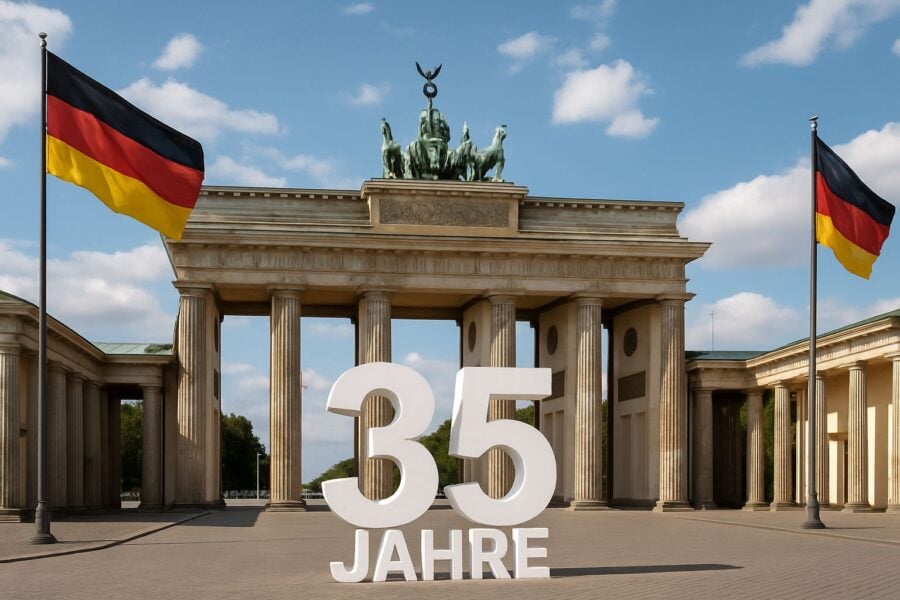Sergey Mironov Broadside Links German Policy, NATO Moves in Moldova and High-level US-Russia Diplomacy
Sergey Mironov, leader of the A Just Russia faction in the State Duma, used Germany’s 35th anniversary of reunification to issue a stark warning about European policy toward Moscow.
He said Berlin risked “repeating the mistakes of the past” and argued that a hard line against Russia could lead to dangerous escalation. (Mironov’s remarks were released by his press office.)
Recalling History
Mironov framed his critique in historical terms.
He recalled 20th-century conflicts in which Germany and Russia fought and argued that recent policy choices reflected continuity with that past.
He added that Germany benefited economically from Russian energy supplies after the Cold War and, in his words, now shows a generation of politicians “openly proclaiming a course towards war with Russia.” (Quoted material came via Mironov’s press office.)
German Leaders and NATO
German leaders marked Unity Day on 3 October, the date East Germany joined the Federal Republic in 1990.
Political leaders in Berlin and Paris used the anniversary to stress European unity and democratic resilience, and to caution against rising authoritarianism. Reuters
Mironov’s intervention arrives amid wider Russian warnings about NATO activity on Moscow’s periphery.
In July, officials in Russia’s security services accused NATO of planning deployments near Moldova and the Odesa region.
Mironov echoed that alarm, declaring Russia would not tolerate a NATO “foothold” in Moldova and saying Moscow stood ready to act to protect Russian peacekeepers and ethnic Russians in the region. Le Monde.fr
Western and independent observers see a broader pattern.
Analysts say Moscow has stepped up information operations around Moldova’s elections and that Kremlin outlets and sympathetic politicians use allegations of NATO aggression to justify possible countermeasures. Le Monde.fr
Mironov also invoked earlier confrontations to make his point.
He compared the current moment to the 2008 conflict in Georgia, saying that Moscow’s response then — which he called a “peace enforcement operation” — showed Russia’s readiness to use force to defend what it calls its citizens and peacekeepers.
That view mirrors Kremlin talking points about interventions in the post-Soviet space. Newsweek
High-Level Diplomacy
The tensions intersect with recent high-level diplomacy.
President Vladimir Putin met President Donald Trump in Alaska this year for talks that both sides described as constructive, though they produced no ceasefire agreement.
Mironov urged Western leaders and Mr. Trump to take responsibility for peace negotiations and publicly questioned the role of Ukraine’s leadership in any settlement. CBS News
Observers cautious of Moscow’s signals argue Sergey Mironov speaks from a Kremlin-sympathetic position.
A Just Russia operates as a systemic opposition party in Russia; its leaders often echo or reinforce official foreign-policy themes while maintaining a distinct parliamentary profile. GlobalSecurity
What to Watch Next
Germany’s Unity Day and the Shadow of History: Memory, Policy, and Moscow’s Rhetoric
— How Berlin responds: German officials mark Unity Day by highlighting democracy and European solidarity. Watch whether German rhetoric tightens or seeks de-escalation. Reuters
— Moldova’s stability: Moldova’s recent elections and the unresolved status of Transnistria remain flashpoints. Any troop movements or major protests there could prompt high-stakes statements from Moscow. The Guardian
— Diplomatic channels: The Trump-Putin talks and follow-up diplomacy involving European leaders will matter for whether rhetoric turns into new initiatives or fresh crises. CBS News
Neutral readers should note Mironov’s warnings form part of a broader Russian information campaign that links NATO activity, EU enlargement and Western diplomacy to existential threats.
His statements draw on historical memory and on recent security disputes.
They therefore matter less as discrete policy proposals than as signals of Moscow’s continuing willingness to frame European moves as immediate threats to Russian interests. Le Monde.fr

